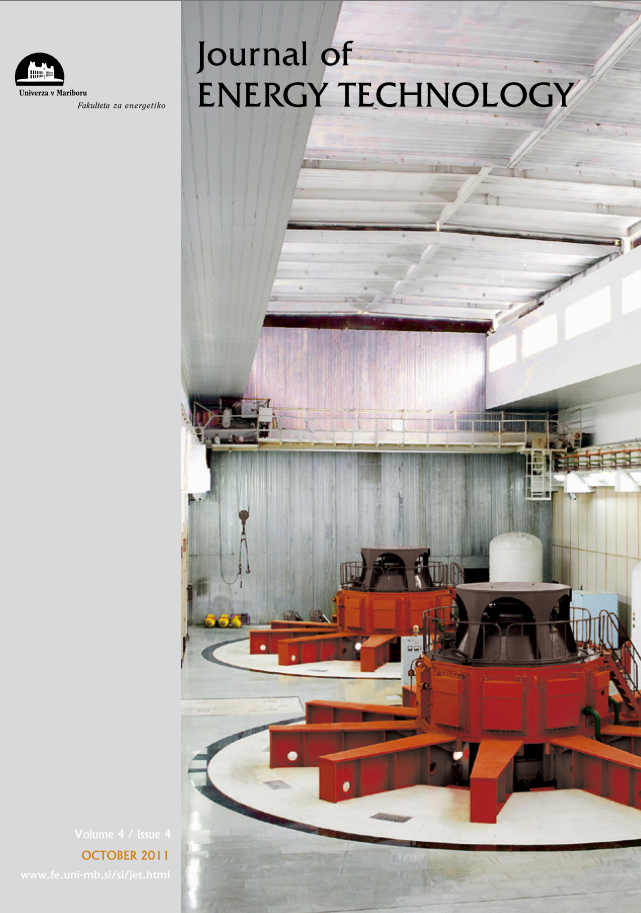PROVIDING MAINTENANCE SERVICES TO NUCLEAR POWER PLANTS: THE ROLE OF SAFETY CULTURE
DOI:
https://doi.org/10.18690/jet.4.4.11-24.2011Keywords:
Safety culture, nuclear power plant, maintenanceAbstract
After explaining basic terms and the relationships between the organizational and safety cultures, this paper illustrates the characteristics of the safety culture in the nuclear industry and, more specifically, in the maintenance of nuclear power plants (NPP). It further discusses the role of safety culture in organizations of external maintenance providers. The results clearly show that the standards and criteria of the safety culture applicable to plant employees are equally valid for external service providers. For the latter, assuring the highest levels of safety culture is a challenge, especially for those who do not provide services solely to the nuclear industry. The case on a leading Slovenian nuclear services provider, NUMIP d.o.o., illustrates its methods and activities for the continual improvement of safety culture in the organization.
Downloads
References
Androjna, A., 2008: Varnostna kultura v jedrskih elektrarnah in pri zunanjih izvajalcih vzdrževalnih storitev, Corporate culture subject seminar work in doctoral study of System logistics program, University of Maribor, Faculty of Logistics Celje-Krško
Alexander, E.L., 2004: Safety Culture in the Nuclear Power Industry, [URL:
http://dspace.mit.edu/bitstream/1721.1/34441/1/70690526.pdf], 10.06.2011
Apostolakis, G. in Wu, J. S., 1995: A structured approach to the assessment of the quality culture in nuclear installations, American Nuclear Society International Topical Meeting on Safety Culture in Nuclear Installations, Vienna, April 24–28
Beckmerhagen, I.A. et. Al, 2003: Integration of management systems: focus on safety in the nuclear industry, International Journal of Quality & Reliability Management, Vol. 20 No. 2
Electric Power Research Institute, 2003: Partnering with Contractors and Vendors to Perform Maintenance Activities, Final Report 1007547
Höpfl, H., 1994; Safety Culture, Corporate Culture: Organizational Transformation and the Commitment to Safety, Disaster Prevention and Management, Vol.3 No.3, MCB University Press International Nuclear Safety Advisory Group, 1991, Safety Culture, Safety Series No. 75-INSAG-4, International Atomic Energy Agency
International Atomic Energy Agency, 2006, The Management System for Facilities and Activities, Safety Requirements No. GS-R-3
International Atomic Energy Agency, 2005, Safety Culture in the Maintenance of Nuclear Power Plants, Safety Reports Series No. 42
International Atomic Energy Agency, 2002a, Safety Culture in Nuclear Installations: Guidance for use in the enhancement of safety culture, IAEA-TECDOC-1329
International Atomic Energy Agency, 2002b, Self-Assessment of Safety Culture in Nuclear Installations: Highlights and good practices, IAEA-TECDOC-1321
Institute of Nuclear Power Operations, 2009: Supplemental Personnel Process Description, INPO AP-930, Rev.2, Atlanta, GA
Institute of Nuclear Power Operations, 2006: Human Performance Tools for Workers, INPO 06-002 Good Practice, Atlanta, GA
Institute of Nuclear Power Operations, 2004: Principles for a Strong Nuclear Safety
Culture[URL:http://www.nrc.gov/aboutnrc/regulatory/enforcement/INPO_PrinciplesSafetyCulture.pdf], 20.12.2007
Nuclear Energy Institute, 2003: Nuclear Power Plant Personnel – Employee Concerns Program - Process Tools In A Safety Conscious Work Environment, NEI 97-05, Rev. 2
US Nuclear Regulatory Commission, 2006: Safety Culture Components for January 18, 2006 Public Meeting
Schein, E. H., 1985: Organizational Culture and Leadership; San Francisco: Jossey-Bass Publishers
STUK, Radiation and Nuclear Safety Authority, 2006: Insufficient guidance of subcontractors' work in Olkiluoto 3 nuclear power plant project [URL:
http://www.stuk.fi/stuk/tiedotteet/2006/en_GB/news_419], 10.06.2011
